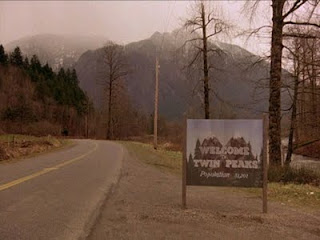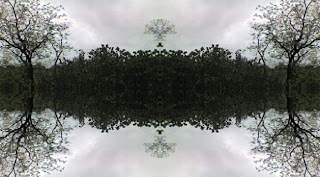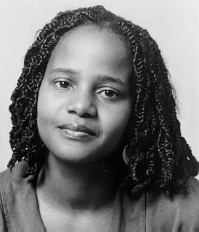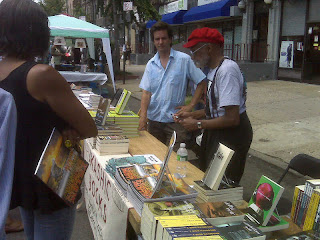is Dennis Cooper's new selection of the Little House on the Bowery imprint here at Akashic Books. It is Mark Gluth's *breathtaking* debut novel.

The interview here is between Akashic Books editor Ben Fama and author Mark Gluth.
This book drifts among a lush world of daydreams and loss. Can you talk a little about the things that were on the back of your mind, if not the front of it, while you were working on Late Work?
Well I thought a lot about the shape of it, and by extension the shape of stories in general. I came up with different ways of looking at my book and what I was doing. One was that the book was a monument to loss. Another was that I was writing fiction, but that it was a sculpture made out of words not a ‘story’. This line of thought allowed me to make decisions in the book for aesthetic reasons as opposed to for narrative reasons. Along with that I became obsessed with the idea that the overall narrative was literally true but logically impossible. I spent a lot of time thinking about the implications of that, ensuring it still ‘worked’ for me at some gut level.
It took years to write the book so in addition to these abstract goals I ended up discovering plenty of things that influenced me. First was the writing of Marie Redonnet and Derek McCormack. Their books, in very different ways, demonstrated that something was possible in fiction that I’d not thought of before. Their work gave me confidence because it kinda validated what I was doing, at least in my head. Another one was music. I began to think of the book as if it was the work of a band: each chapter was an album, and each paragraph was a song. That definitely gave me a way into testing its structure, ensuring it held up and functioned when viewed through an entirely different lens. There was also a ton of music that influenced the book at various times. A small sampling: ‘Faded From The Winter’ and ‘Upward Over The Mountain’ by Iron and Wine. ‘Leave Me Alone’ by New Order. The Beth Gibbons solo album, the first couple albums by Tunng , the album ‘Précis’ by Benoit Pioulard. Xiu Xiu. Anything to do with Spencer Krug… I would create these long playlists and kind of meditate on the music as I wrote.
Another big influence was video games, and their capability for narrative. Most video games worth their salt have strong narratives but at the same time the narrative is so beside the point to the experience of the game. It’s complex. An inspiration for me in particular were ‘The Legend Of Zelda’ games by Nintendo, in particular the game ‘Wind Waker’. The way the Zelda games are structured is that each game is part of a much larger narrative composed of the same story being told over and over again via all the different Zelda titles, and then within each game each level is ultimately just another version of every other level in every other Zelda game. The idea of a narrative experience like that became really compelling to me.

What stays with me after reading the novella is the sense that the authority that holds the book together isn’t a force of narration or action, but rather a repetition of similar emotions. Can you tell us a little about how you approached the novel’s creation?
That’s cool. I don’t always have a developed vocabulary for what I was trying to do, but another goal was that the book would move forward in a way that made emotional sense. So yeah, I’m glad you think that.
As far as how I approached it… well it was piecemeal, the way it came about. Initially I had various images and moods, settings that I kind of collected because I found them compelling. At some point I decided they were part of some larger whole and that whole was a book. There was a very long period of time where I experimented with various overarching narratives for the novel, structures that could collect all these disparate elements I had in my head. Once I had that nailed I set about just basically writing the book. I had all the key narrative signposts mapped out, and the overarching structure. So I knew what needed to happen in a narrative sense to support that.
That sense of structure being in place gave me a wide berth to experiment with everything else. Anything that was not needed to support the structure of the book was a variable that I probably changed at some point. The way I worked was that I wrote the book in order, one chapter at a time. I’d work on a chapter ‘till I was happy/done with it, then moved on to the next. They usually took about 6 months of near daily writing, but some took longer.
Nailing the language was key for me. And that just took, and still takes time. I usually had vague and abstract intentions for the language that I didn’t understand until I just realized it through constant revision. It’s all very step by step for me. Most of the chapters took 70 drafts or more, and the first draft of a chapter reads nothing like the final. Anyway, once the first draft of the book was assembled from the completed chapters, I kinda held onto it for several months before going back and expanding some sections. I really didn’t change anything I’d previously written though. Overall it took about 5 years from conception to completion.
People's most immediate reaction to the book always seem to be sparked by the book’s treatment of daydreams. The wide-open logic of dreams (or daydreams) is much the logic of LATE WORK. What personally do you have to say about dreams?
Well, I remember most my dreams and very rarely do I ever have a good dream. What I mean is a dream that is compelling in a fictional sense. But I am haunted by my dreams. Usually when I write them down I think they mean so much to me but if someone read them they'd start laughing.
Having said that I never really thought of the book as a ‘dream book’ until people started telling me that and I'm still not sure what I think. For me the dreams serve as a mechanism that does several things. First, they allowed me to underscore and color the characters, and define them. Second they allowed me to create shadow narratives, and gave me space in which I could insert narratives that didn't fit into the primary flow. I see the dreams as functioning on the same level as the fictions in the book: they are part of the composite of information that define the characters and also move the narrative forward in a non- narrative sense. Ultimately I worked hard to ensure the dreams felt like dreams, as opposed to descriptions of dreams.


The handling of nature—fog, wet trees, damp earth—seems to resonate with David Lynches handling of nature in Twin Peaks (which is obliquely referenced early by the band named Wrapped in Plastic). You’re from Washington State, where much of the TV series was filmed. Something both you and Lynch do so compellingly is use the environment to convey emotional information. Am I way off here?
To be honest I never thought about a connection between the book and his stuff until your question. I mean, yeah ‘Wrapped In Plastic’ is something I took from the first episode of TP. I chose it for aesthetic reasons- I like the p sounds are kinda of alliterated and repeated in the sentence it first appears in- as well as a nod to an artist I totally admire, but now you have me thinking…..
One strength of Lynch’s work is the way he uses the physical environment that any scene is taking place in, and through the camera work and sound design, makes it a character on par with the actual characters in the movie. One thing I wanted to do in my book was to make the physical environment in my book an element just like how the dreams, the fiction w/in fiction and the characters are elements that add up to the composite mood of the book. I wanted the mood to be a major thing, probably the main thing. So maybe that’s something I learned from his movies w/o realizing: how to play with the balance of those different parameters.
Additionally, There’s something about the ecosystem here I find so compelling and so I definitely wanted to pay homage to that as well. Maybe November in the Pacific Northwest is my muse. Ultimately I feel the portrayal of nature in TLWOMK is just basically realistic. It doesn’t rain here as much as people think, but it’s always kinda damp. Sometimes the sun’s something you just remember as opposed to see. I think Twin Peaks captured the feeling of rural northwestern Washington but so does the work of other Pacific northwest -centric artists like the bands Wolves In The Throne Room, or Mount Eerie. Hopefully my book does too.
What surprises did you encounter as an author while you were writing Late Work?
I began to get into the idea of lyricism, and a certain slanginess. I imagined dryer language at the beginning of writing but that evolved. So my instincts surprised me. I mean, the books still tight and minimal but I learned to loosen it a bit. I’m continuing that further into the novel I’m currently writing as well. Also I kept thinking I was 3 months away from finishing the book. Even way at the beginning. Every time I finished a chapter I thought ‘ok, give me 3 months and it’ll be done.’


The first image appears courtesy of Akashic Books, the second image is a Mount Eerie album cover, and the final two images appear courtesy of Mark Gluth













